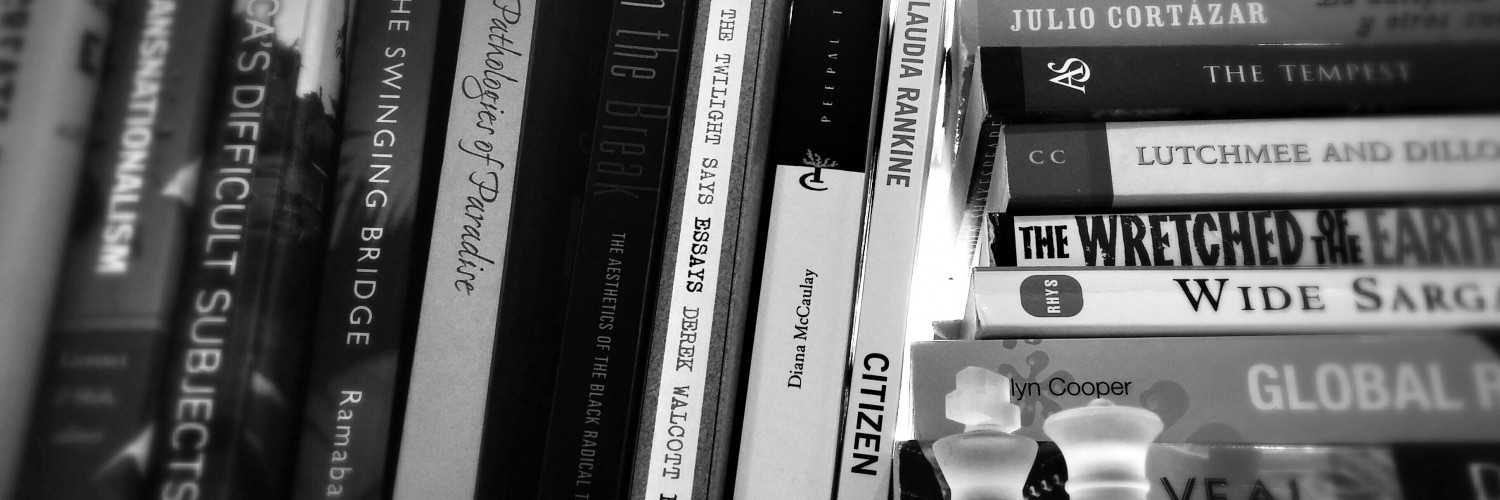Located south of the Atlantic Ocean, east of Venezuela, west of Suriname, and north of Brazil one will find the intriguing English speaking country of Guyana. Despite being attached to the South American mainland, Guyana is undoubtedly West Indian (read: Anglophone Caribbean) and shares in that Caribbean legacy of colonization and multiplicity. But before there was a Venezuela or a Suriname or a Brazil, or a colonizer from any European nation, before there were indentured laborers from India, and before there was an importation of enslaved Africans, there were the indigenous groups who called this little piece of the globe home. These people, their languages, their customs, and their beliefs still thrive today. They are known collectively as Amerindians. Locally, in Guyana, Wapixana, Arawak, Carib, Patamona, and Warao are just a few of the Amerindian tribes surviving today. So why am I sharing this history lesson? Because fifteen years ago I read a good story by a Guyanese author of mixed European, African, and Amerindian heritage and her story has never left my mind.
Pauline Melville is the author of The Ventriloquist’s Tale (1997). In this novel readers are taken deep into Guyana’s (then British Guiana) hinterlands and out to the coastal capital city of Georgetown and far off to Canada as the plot unfolds during the first third of the 20th century. The novel is ripe with everything I never knew I wanted in a fiction: incest, mythology, colonial oppression, a general fear of miscegenation (racial mixing), a general fear of culture mixing (the losses never match the gains), and a palpable anxiety for both knowledge and freedom as both come at a cost. Yes, The Ventriloquist’s Tale is a very good story and because it is very good it has continued to haunt my mind, and I mean that in the best way.
Good stories are not good because they are sweet or kind. Good stories are good because they are honest. Good stories are good because they expose truth. Good stories are good because they show us something about ourselves and make us ask tough questions. And we know these stories are good because we connect with them and never let go. Good stories haunt us forever. Last month my paternal grandfather passed away after falling ill. Three days ago family and friends gathered to celebrate his life. As I stood at the church pulpit to read my grandfather’s obituary aloud, that good story by Pauline Melville surfaced again. It echoed as I spoke of my grandfather’s birth in the small district of Milestone in Jamaica. I heard it as I spoke of his move to New York City where he made a life in Queens. It quieted as I named his siblings, his friends, his wife, his children, and grand- and great-grandchildren. But it was there as I listed his jobs, accomplishments, and hobbies and spoke of his love of mangoes and calypso. It grew to a piercing pitch as I spoke of his date of return: ashes to ashes.
My memory of Melville’s novel surfaced because my grandfather’s obituary was not his life, it was not his good story. Rather, my Jamaican grandfather’s life was one good story after another and always a lesson laced with humor. It was a story told in patois, Spanish, and Yankee. It was a story of carefully selected words and purposeful pauses. It was a story told in a chuckle and a story told in a sigh. It was a story of digressions and redirects. And always from his lips came a story of love. Love of family, love of God, love of friends, love of countries. Always to my ears came a story of life. A life built by family, by God, by friends, and by countries. No, his obituary was not his life. And this is why that clever, confident trickster narrator, Macunaima, in The Ventriloquist’s Tale came to me as I read his obituary. Breaking free of the fiction, Macunaima engages the reader directly when he says: “Writing things down has made you forget everything. […] Do you think a man’s life is slung between two dates like a hammock? Slung in the middle of history with no visible means of support? It takes more than one life to make a person” (2).
Like Melville’s The Ventriloquist’s Tale, my grandfather’s good stories will haunt me forever, in the best way. As but one of the lives who made up the person that was my grandfather, I can say that he was a storyteller of the best order. His own memories of people and places were as sharp and as pointed as they come. No, his life was no hammock of dates. His life was rich with experiences that he bestowed to all as gifts of memory. And I hope that writing this down does not make me forget a thing.

Each post is better than the last! I love this!
LikeLiked by 1 person
This riddim here was personal. Thanks for the love.
LikeLike
Beautiful! I wish I could’ve had the opportunity to meet your Grandfather. I love a good story, but I love (even more) a good storyteller.
LikeLiked by 1 person
You two would have gotten along swimmingly. Every storyteller just needs a willing listener.
LikeLike
Graceful…the true obituary just came from you.
LikeLike
I appreciate this comment. Deeply. Thanks.
LikeLike
I not only hear but also feel the riddim! Write on sista, writ on.
LikeLike
I not only hear but also feel di riddim. Write on sista, write on.
LikeLike
Brilliant writing! You told us all a ‘very’ good story. A story I know to be unadulterated truth.
LikeLiked by 1 person